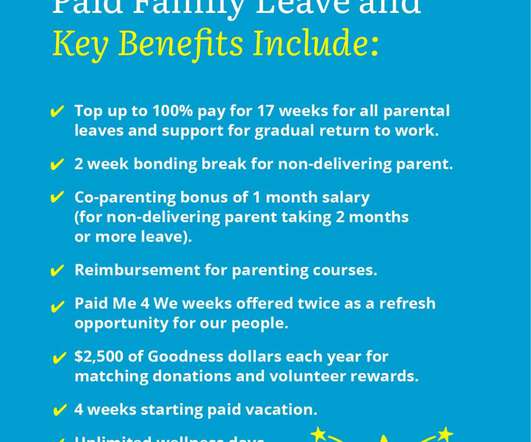Gen Z Recruiting Trends: How to Effectively Engage and Hire the Next Generation of Workers
Recruiting Daily
MAY 5, 2022
As younger children, many watched their parents and older siblings experience one financial setback after another while struggling through The Great Recession in 2007, then record-high unemployment rates in 2020. According to the Financial Services Job Seeker Trends Survey 2021, 79.4% And who can blame them?



















Let's personalize your content